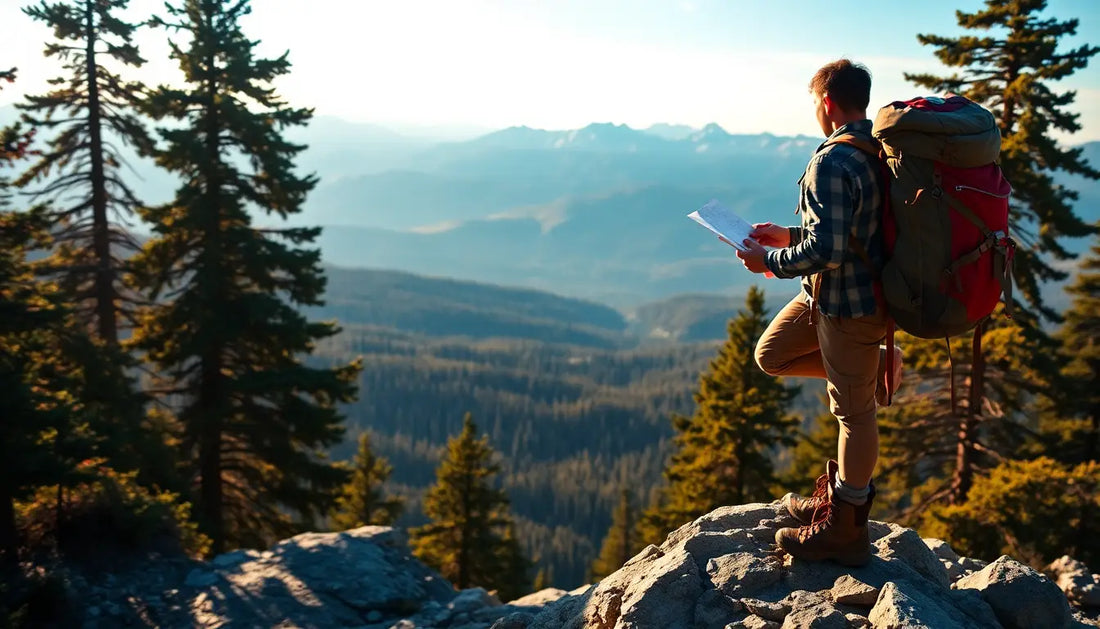
Hiking in the Backcountry: Essential Skills and Safety Tips for Remote Trails
TF AdventureVenturing into the great outdoors is a thrilling and rejuvenating experience, but it also requires careful preparation and a deep respect for the wilderness. Whether you're an avid hiker or a nature enthusiast looking to explore remote trails, mastering the essential skills and safety protocols is crucial for a successful and enjoyable backcountry adventure.
At TF Adventure, your one-stop shop for outdoor camping and mountain and jungle adventure equipment and accessories, we understand the importance of being well-equipped and knowledgeable when it comes to navigating the backcountry. In this comprehensive guide, we'll delve into the key skills and safety considerations you need to keep in mind when hiking in remote areas, ensuring that your journey is both exhilarating and safe.
Navigation Skills: Mastering the Art of Finding Your Way
Effective navigation is the foundation of any successful backcountry hike. In the absence of well-marked trails and reliable cell phone signals, you'll need to rely on a range of navigation tools and techniques to stay on course and find your way back.
Compass and Map Reading
A reliable compass and detailed topographic maps are essential for navigating remote trails. Learn how to read and interpret these tools, understanding how to identify landmarks, terrain features, and trail markers. Practice using your compass and map together to plan your route and stay oriented throughout your hike.
GPS and Navigation Apps
While technology can be a valuable asset, it's important to use it in conjunction with traditional navigation methods. Familiarize yourself with GPS devices and navigation apps, ensuring that you know how to use them effectively and have backup power sources in case of battery depletion.
Celestial Navigation
In the absence of modern technology, the ability to navigate using celestial bodies can be a lifesaver. Learn how to use the sun, moon, and stars to determine your direction and position, and practice these skills before venturing into the backcountry.
Trail Safety: Prioritizing Your Well-being
Hiking in remote areas comes with inherent risks, and it's crucial to be prepared for a range of potential hazards. By understanding and practicing essential safety protocols, you can minimize the risks and enjoy your backcountry adventure with peace of mind.
Wilderness First Aid
Accidents and medical emergencies can happen, and being equipped with wilderness first aid knowledge and supplies can make all the difference. Learn how to treat common injuries and illnesses, and ensure that your first aid kit is well-stocked and tailored to your specific needs.
Emergency Preparedness
Unexpected situations can arise, from severe weather to wildlife encounters. Familiarize yourself with emergency protocols, such as signaling for help, building shelters, and navigating through challenging terrain. Pack essential survival gear, and practice using it before your hike.
Weather Awareness
Staying informed about weather conditions is crucial for backcountry safety. Check forecasts, understand how to interpret weather patterns, and be prepared to adjust your plans or seek shelter if necessary.
Sustainable Practices: Preserving the Wilderness
As stewards of the natural world, it's our responsibility to minimize our impact on the environment and protect the delicate ecosystems we explore. By adopting sustainable practices, we can ensure that the backcountry remains pristine for generations to come.
Leave No Trace
Familiarize yourself with the principles of Leave No Trace, which guide us in minimizing our footprint and respecting the natural world. This includes properly disposing of waste, avoiding disturbance to wildlife, and leaving campsites and trails as you found them.
Wildlife Awareness
Backcountry hikes often bring us into close proximity with wildlife. Learn how to identify and respond appropriately to different animal encounters, ensuring the safety of both you and the creatures you encounter.
Campsite Selection and Management
Choosing the right campsite and managing it responsibly is essential for minimizing your impact. Select sites that are durable and away from sensitive areas, and follow best practices for setting up camp, cooking, and disposing of waste.
Conclusion
Hiking in the backcountry is a truly rewarding experience, but it also requires a deep understanding of the skills and safety protocols necessary to navigate remote trails. By mastering navigation, prioritizing your well-being, and adopting sustainable practices, you can embark on your backcountry adventures with confidence and a deep appreciation for the natural world.
At TF Adventure, we're dedicated to equipping you with the gear, knowledge, and resources you need to explore the great outdoors safely and responsibly. Whether you're a seasoned hiker or a newcomer to the backcountry, we're here to support you every step of the way. So, lace up your boots, pack your gear, and let's venture into the wild together!
